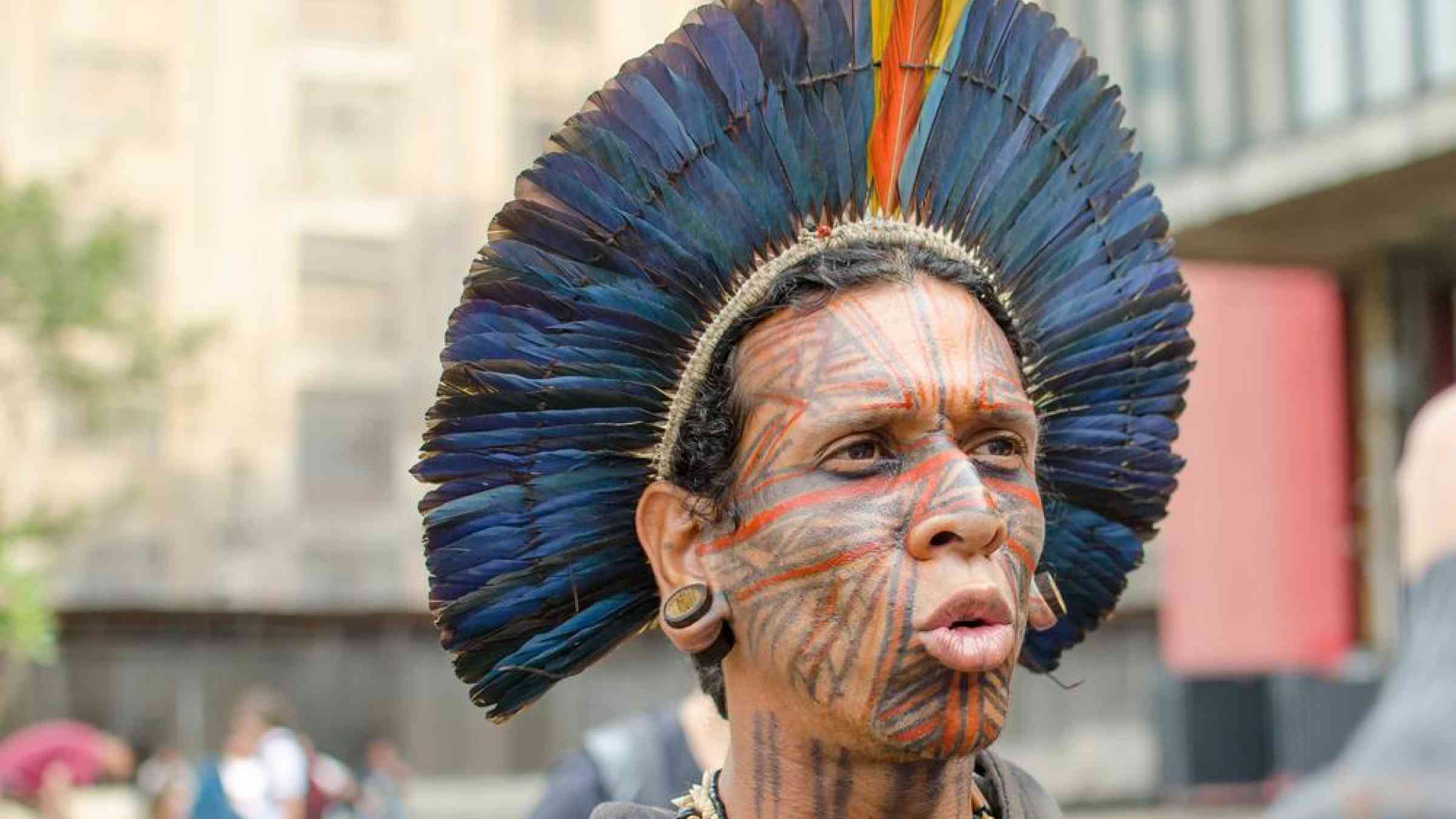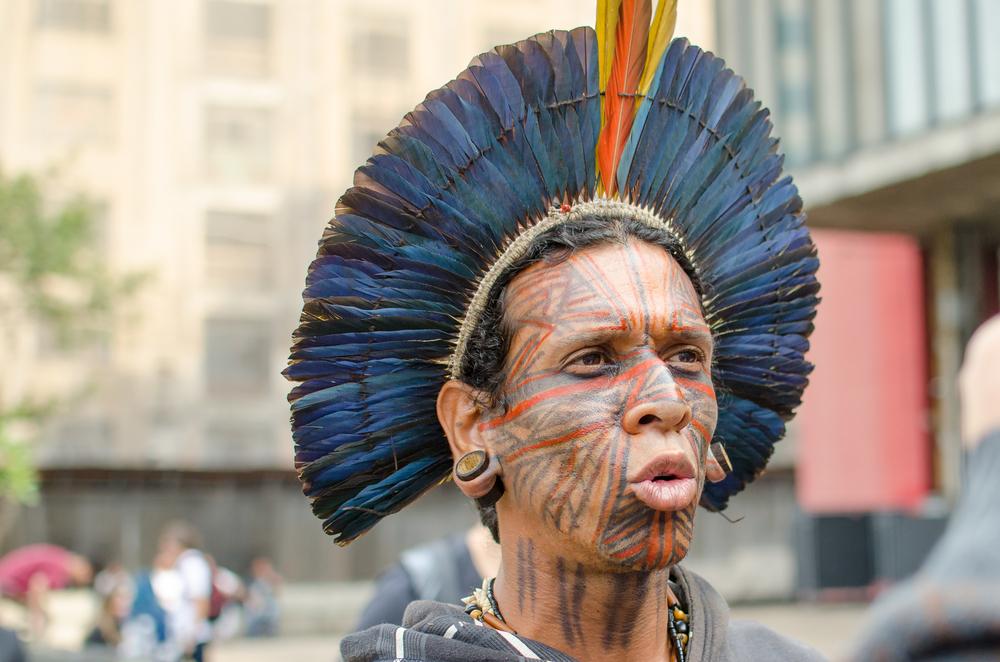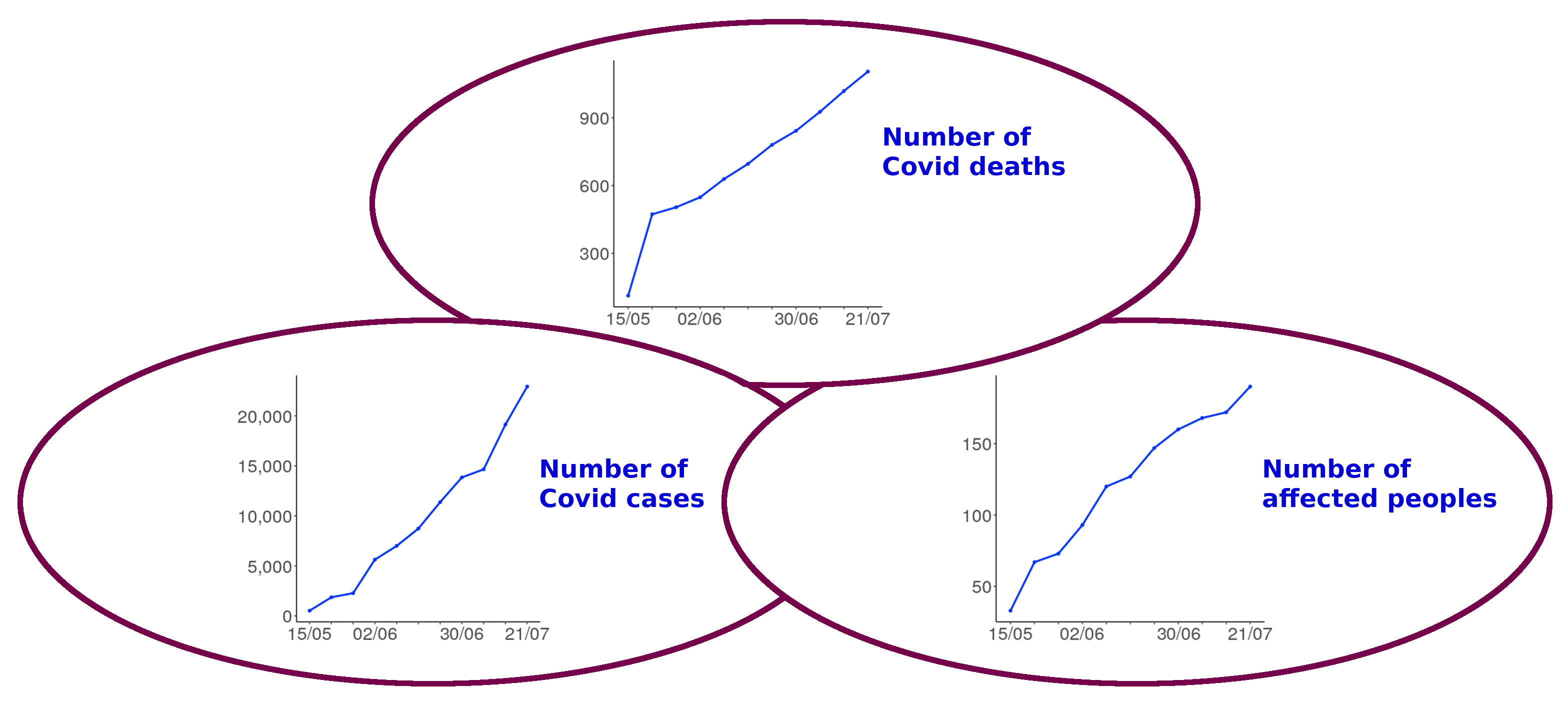Please help us improve PreventionWeb by taking this brief survey. Your input will allow us to better serve the needs of the DRR community.
COVID-19: an existential threat for indigenous peoples of the Amazon

Tupinamba Indians in Sao Paulo, Brazil. Rogerio Cavalheiro / Shutterstock.com

“The guardians of the forests are in danger!”, Tuntiak Katan observes at the beginning of the Covid-19 outbreak. His warning still echoes and reverberates in my head.
Over the last three months, the coronavirus has rapidly spread through the Amazon basin. As of July 21st, there were close to 23,000 Covid-19 cases among indigenous peoples of the Amazon, and more than 1,100 fatalities. The pandemic has tragically amplified the structural problems of the region, and is threatening to destroy whole peoples and communities.
Danger of ethnocide is real
“We are not merely talking about an indigenous person getting the virus,” warns Tuntiak Katan, the Shuar leader who oversees the Covid-19 response of the Coordinating Committee of Indigenous Organisations of the Amazon River Basin (COICA), “We are talking about the possibility that a whole people … disappears.” His premonition is widely shared across the region.
The sad demise of prominent indigenous leaders due to coronavirus, most recently of Achuar leader Miguel Eduardo Vargas Aranda, have reinforced the fear of ethnocide. In an obituary to Vargas Aranda, the indigenous umbrella organisation COICA notes that “our eldest and wise, our grandparents and grandmothers are leaving us, and the governments don’t take any action.” They add that “if we don’t take urgent action, we are at the doorstep of an ethnocide.”
COICA has been closely monitoring the Covid-19 situation. Their weekly updates, summarised in the graphs below, show not only a sharp rise in the overall number of cases and fatalities, but also in the number of affected peoples. As of now, approximately 190 indigenous peoples have been affected by the pandemic. Amongst these are for example the Wajuru in Brazil, who are comprised of less than 300 members and confirmed their first Covid-19 case last week.

Amplification of structural vulnerabilities
The disastrous effects of the Covid-19 pandemic arise from a range of structural vulnerabilities.
The most obvious problem is the lack of adequate health care. As the COICA president Gregorio Díaz Mirabal observes, “The pandemic has exposed that there are no doctors and no health infrastructure in [indigenous] communities.” In Peru, for instance, less than 3% of indigenous communities possess a health post with medical staff. As a consequence, the Covid-19 mortality rate amounts to a staggering 10% in those communities.
The dire health care situation is tied to the noticeable lack of economic resources, which contributes to the disaster. In a recent funding appeal, Kanamari leader Higson Dias breaks down the required resources: “The most urgent need for those [Kanamari] in the city is access to foodstuffs, masks, and cleaning and hygiene products. Those in the villages need financial resources to purchase hunting and fishing tools, and fuel for their boats.” There are currently 1,600 Kanamari who live in the Javari valley in Brazil; 300 more dwell in the urban perimeter of Atalaia do Norte.
Both health and economic deprivations are connected to profound socio-political problems. In particular the lack of territorial security has aggravated the Covid-19 crisis. Yanomami leader Dario Kopenawa warns for example that illegal mining could result in the infection of almost half of his people. In collaboration with other indigenous leaders, Kopenawa has launched the #MinersOutCovidOut campaign, which aims at driving out illegal miners from indigenous territories. The campaign is especially important in light of the recent increases in illegal logging and mining activities in Brazil. There are currently 20,000 illegal gold miners in Yanomami territory.
We have to act now
The Covid-19 pandemic in the Amazon region needs an immediate and decisive response. Such response must include the protection of indigenous territories, the provision of adequate levels of medical and food supplies as well as culturally appropriate measures to prevent and treat cases of Covid-19.
If we act now, we will be able to mitigate the current disaster, and can hopefully avert future ones. The Amazon Emergency Fund has already raised more than a million dollar and has begun with the provision of urgently needed treatments and supplies.
The legal victory of the Huaorani against the Ecuadorian government provides another ray of hope. The Huaorani lawsuit forced governmental agencies to better coordinate the distribution of food supplies and Covid-19 tests with indigenous authorities, and to properly monitor illegal logging, mining, and drug trafficking activities.
There is hope, but in order to pre-empt future disaster, it is necessary to ensure and safeguard the political and economic sovereignty of indigenous peoples in the long run. “We indigenous peoples have survived many pandemics,” explains Tuntiak Katan with reference to the long history of imported diseases, “and that’s not because of state policies, but because our ancestral medicine, our home, our land have saved us.” The international community needs to support indigenous peoples in the continuing fight for their rights to health, well-being, and self-determination.
Theodor Borrmann is currently pursuing a doctorate at the Oxford Department of International Development.
Editors' recommendations
- More about coronavirus disease outbreak
- More about vulnerability in the age of COVID-19
- Supporting Peru’s indigenous people in the fight against COVID-19
- The worst time for a pandemic – how coronavirus and seasonal floods are causing hunger in the remote Amazon
- COVID-19: We will be measured by how we support the vulnerable
Explore further
Please note: Content is displayed as last posted by a PreventionWeb community member or editor. The views expressed therein are not necessarily those of UNDRR, PreventionWeb, or its sponsors. See our terms of use
Is this page useful?
Yes No Report an issue on this pageThank you. If you have 2 minutes, we would benefit from additional feedback (link opens in a new window).